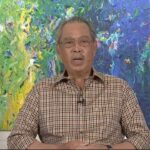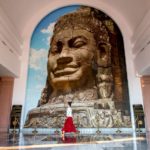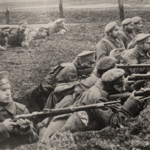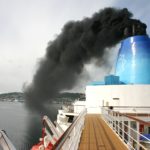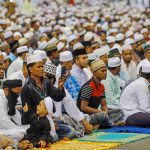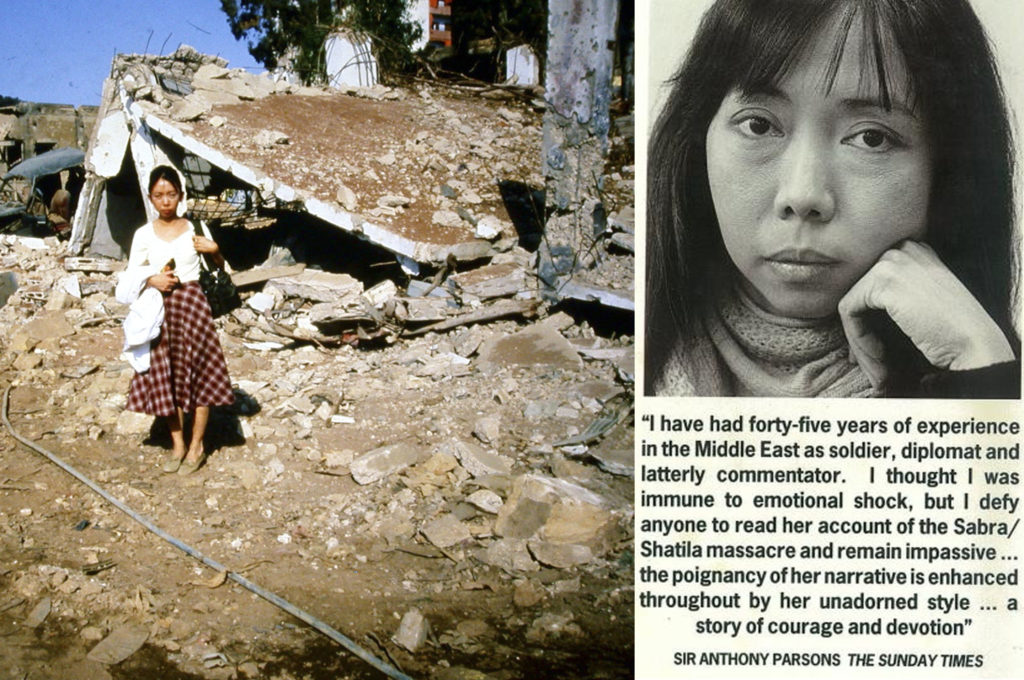
Sad, angry, depressed, hopeful, were few of the thousands of emotions aroused reading ‘From Beirut to Jerusalem’, a memoir by Ang Swee Chai. Through her passion, love, perseverance, bravery, and determination, the world is indeed greatly indebted for her work both as a doctor and also as a witness to the massacre suffered by Palestinian refugee in Sabra-Shatila during the Israeli invasion of Lebanon in 1982.
Her maternal grandfather was a conservative and traditionalist, he believed that an educated woman will not make a good wife. But her mother was a defiant daughter, register herself to school and went to become a teacher. Her father ran away from his grandfather in mainland China refusing to marry a girl arranged for him and went to became a journalist in Singapore. During the Japanese invasion on Malaya, both of them met in the Outram Road prison in Singapore.
After Japan was defeated, they settled as a family. When her mother was pregnant, she went back to her hometown in Pulau Pinang to give birth to her. She was raised in Ayer Itam district in Pulau Pinang with her younger brother, Lee Cyn. They eventually moved back to Singapore following their father’s work. Raised in poor family, her mother raised her with discipline, she then continues her studies in medical school. She married Francis Khoo, a lawyer and activist. Francis was accused to be a communist, he fled Singapore in 1977 avoiding arrest under Internal Security Act (ISA) and took refuge in Britain.
Her parent was areligious but they allowed their children to choose a religion of their own. She embraced Christianity during her studies in medical school.
Ang was well versed about Israel even before volunteering. The church has taught her that Israel was God’s chosen people, and the return of the Jew to Israel was a verification of biblical prophecy. There are many reasons why she supported Israel, one of it was the oppression of the Jew by the Nazis, and the Nazis were Japanese ally during world war, with the creation of Israel the Jew can defend themselves, its a realization of justice from God.
She was prejudiced towards Palestinians, the church has told her that they were terrorist, an old foe, the Philistines of the Old Testament. She was a bigoted, self-righteous fundamentalist Christian, like many Christians she rejoiced in the military triumph of Israel. But that morning in Sabra and Shatila, God destroyed that self-righteousness.
In her memoir, she recreated that journey, from a bigoted Christian fundamentalist to peace activist and friend of the Palestinian people. It started in 1982 when she watch the horror of Israeli invasion and bombardment of the people of Lebanon through British television. The killing of women and children shook her to the core, she resigned prom her hospital in Britain, pack her bag, and went to Beirut as a medical surgeon volunteer.
In Beirut, Dr. Ang Swee Chai served at Gaza Hospital, Palestinian refugees named their hospital with their town in Palestine, its a symbol of longing to their homeland from where they were expelled by the Zionist colonialism. Many of the camp residence were refugees who fled the ethnic cleansing of Palestine in 1948. The hospital situated near the Sabra and Shatila camp. Here, she witnessed the kindness of Palestinian people, the gentleness they showed toward their guest, she also saw their courage, resolution, patience, and resistance against Israeli aggression and occupation.
Before the Sabra and Shatila massacre, Palestinian fighters from Palestinian Liberation Organization (PLO) agreed to evacuate from Beirut as a condition of a ceasefire. Dr. Ang noted “this is the first time that I realized that PLO fighters (who she preconceived as a terrorist) have a home and family in Lebanon, they withdraw and left their wives, children, siblings and parents”. The Palestinian gave away their weapon, the roads are cleared from any barrier. On 14 September 1882, water and electricity supply were restored. They believed in the promised of United States and western powers, that they will be let to live unharmed. They were wrong.
The next day, the camp were encircled by Israeli army and under siege, Israel coordinated Phalangist militia to enter the camp and massacred the people, children, baby, women, old people were brutally murdered. Dr. Ang realized the scale of barbarity and hope that the PLO did not withdraw on the first place, so they can defend the camp people. But it was too late. She recollected this barbaric massacre in her memoir which was first published by Grafton Books & Times Book International in 1989.
Reading her memoir really shock reader’s emotion to the core, your tears will be flowing like a river as she collected her horror, by page 70 your tear will run-out dry, there is so much to take. The story of a people exiled from their homeland in 1948 only to be massacred again by the Israelis in 1982, Dr. Ang could not help but ask, where should they go?
She recalled a story on the height of the killing, there was a woman and a child brought into the hospital, the woman was shot on her stomach and badly wounded. After operation, she needed a blood transfusion. She overheard that the nurse told the doctor that the blood pint given to her was the last, and the child need blood transfusion of the same blood type. She refused the blood pint so that the child can have it and asked for painkiller instead. She died shortly after.
She also written a story about a boy named Mahmoud, who was her patient before the massacre, he injured his wrist whilst helping his father rebuilding their house. After the massacre, when she walked down the road in the camp, Mahmoud appeared, ran toward her and hug her, he was so happy to know that she was alive. Soon, children began to appear around her, they saw her camera and asked for a photo, they wanted the world to see that although their house have been destroyed, their parent massacred, they still can smile and raised their hand with victory sign. Their courage was astonishing.
Reflecting on the Palestinian tragedy, she wondered why Palestinians need to suffer to accommodate the victim of Nazis persecution and European racism? At the end of the memoir, in the post-script, she also reflected on her Christian belief. She wrote “[I was] a bigoted, self-righteous fundamentalist Christian. I thought that I knew the Bible, and God was on our side. I rejoiced in the military triumph of Israel. On that morning in Sabra and Shatila, God destroyed that self-righteousness. Many of my Zionist Christian friends shunned me, but I am no longer intimidated by all this. I have seen a different face of God – that of love, compassion, and grace. He promised Ishmael would be a father of many nations. Palestinian are the children of Ishmael and the children of Abraham. He will wipe away all tears and bring us home..next year in Jerusalem.”
Dr. Ang Swee Chai then became a co-founder of Medical Aid for Palestinians (MAP), she became an activist and regularly invited to talk about the plight of the Palestinians. Her experience in Lebanon changed her life completely, she became the witness of Sabra-Shatila massacre which taught her to never relent in the face of injustice. In her letter to her husband, Francis Khoo she wrote “we are just two small persons in the history of liberation..I saw the face of death, I saw their power and ugliness, but I also saw fear deep inside their eyes, the children of the new generation will come, and they are not afraid”.
Related Posts
Author of several books including Berfikir Tentang Pemikiran (2018), Lalang di Lautan Ideologi (2022), Dua Sayap Ilmu (2023), Resistance Sudah Berbunga (2024), Intelektual Yang Membosankan (2024), Homo Historikus (2024), DemokRasisma (2025), dan Dari Orientalisma Hingga ke Genosida (2025). Fathi write from his home at Sungai Petani, Kedah. He like to read, write and sleep.
